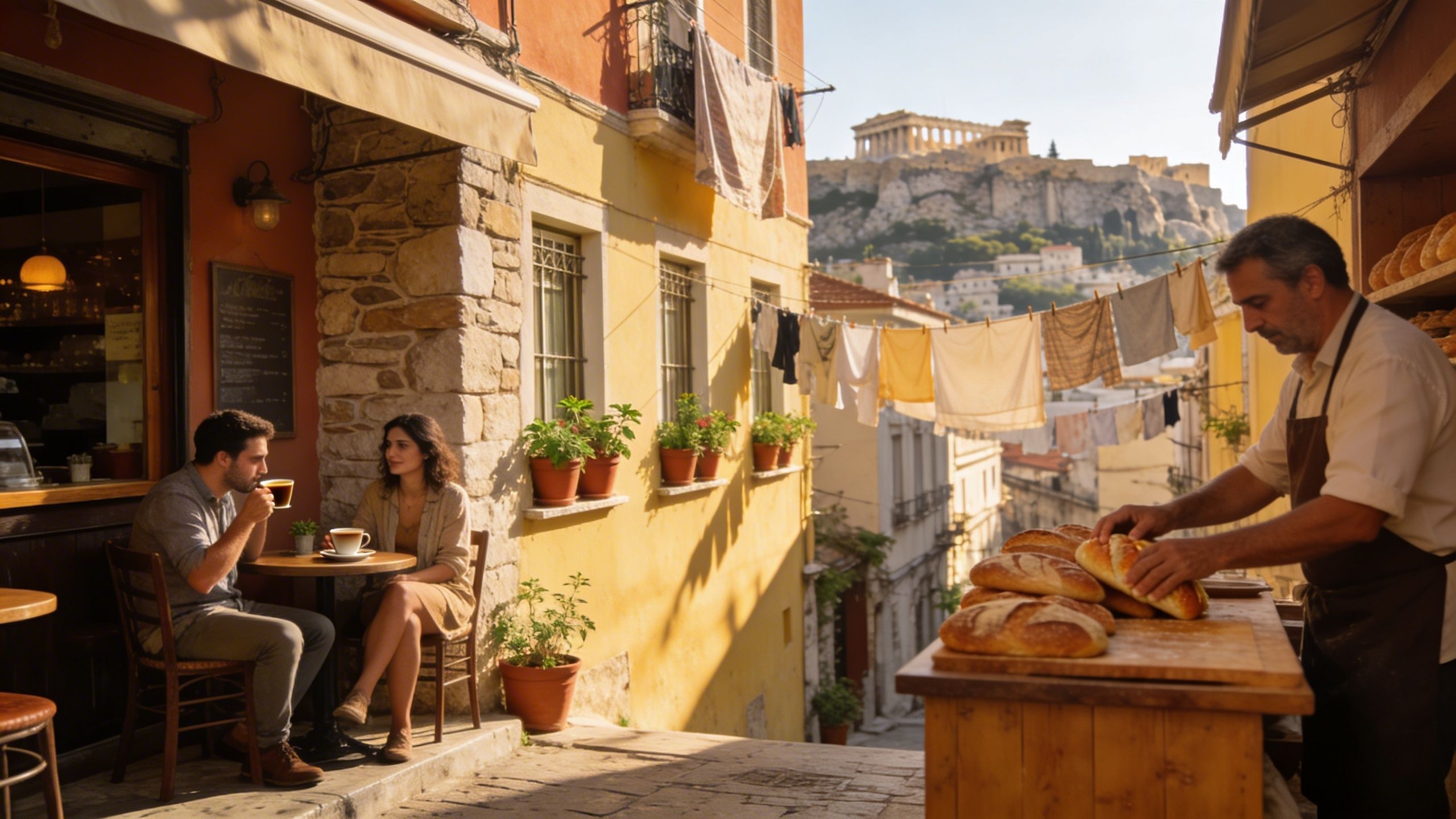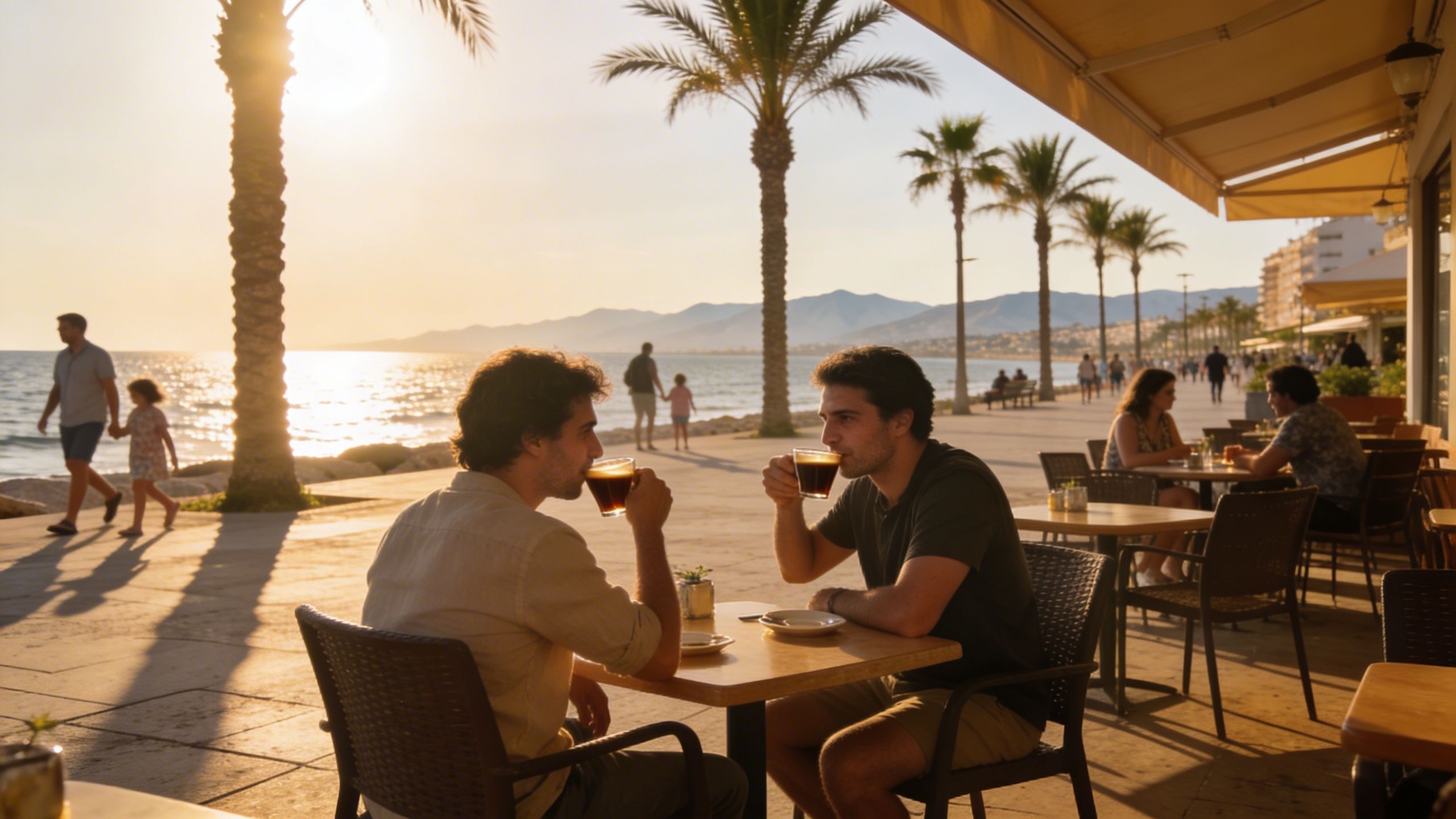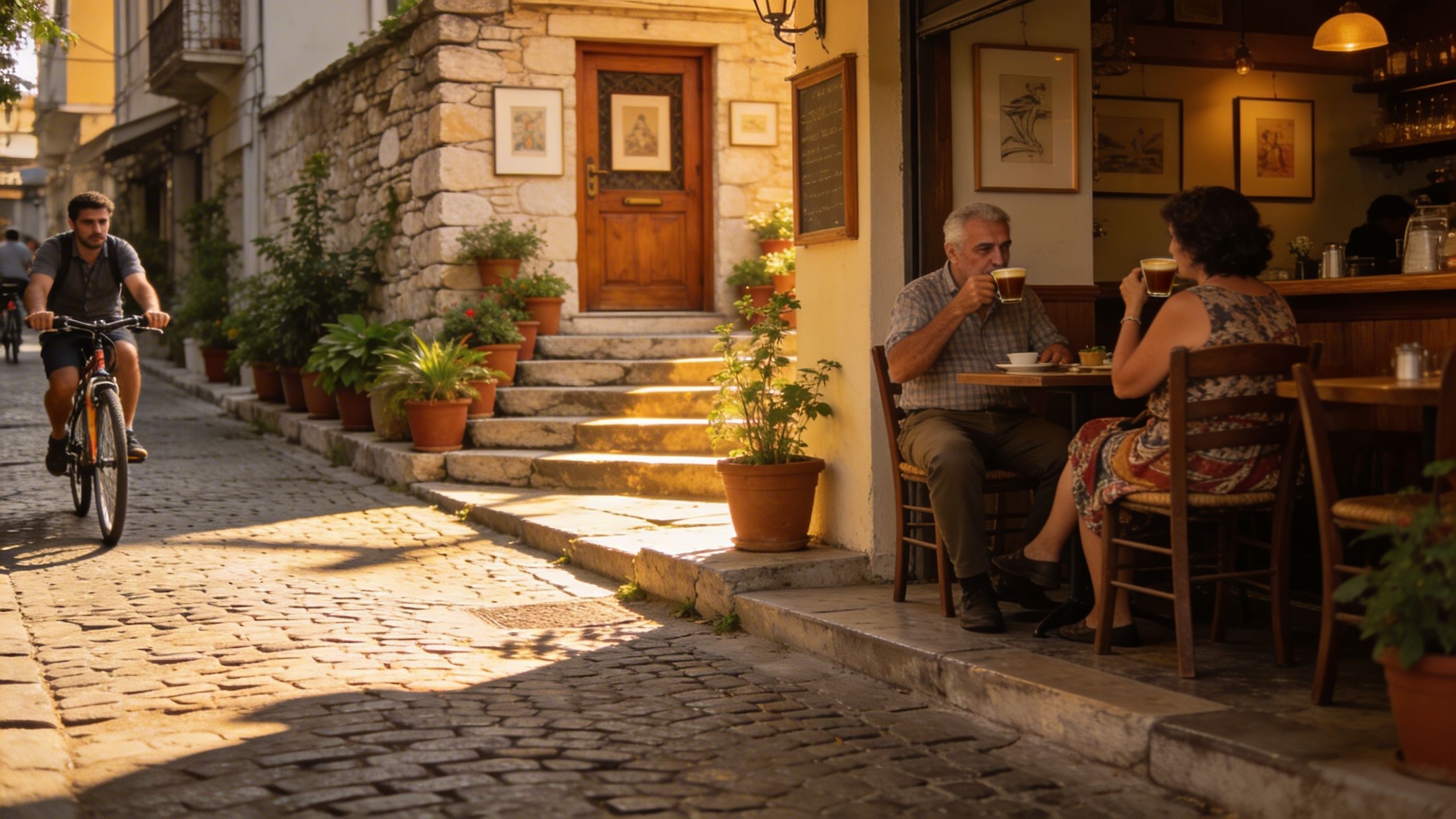Skip the Sea‑View: Where Value & Quiet Life Hide in Greece
Fall for Greece’s rhythm — then do the paperwork. Practical due diligence, recent market signals and local rules you need to know to buy sustainably and quietly.
Imagine waking to the smell of strong Greek coffee, then stepping out to a sun-warmed square where elders argue gently about the sea and a fruit vendor knows your name. In Greece the day unfolds slowly — morning markets, late lunches, a siesta rhythm in summer — and that tempo shapes where people choose to live. For many of us dreaming of a greener life here, the landscape matters: olive groves edging stone villages, terraces planted with herbs, and homes that open to the sea or a mountain pine. But the romance and the paperwork arrive together: permits, taxes, and a shifting market that rewards local knowledge. This piece mixes place-first storytelling with focused due-diligence steps so you can fall in love — deliberately.
Living the Greek Life — Rhythm, Neighbourhoods, Seasons
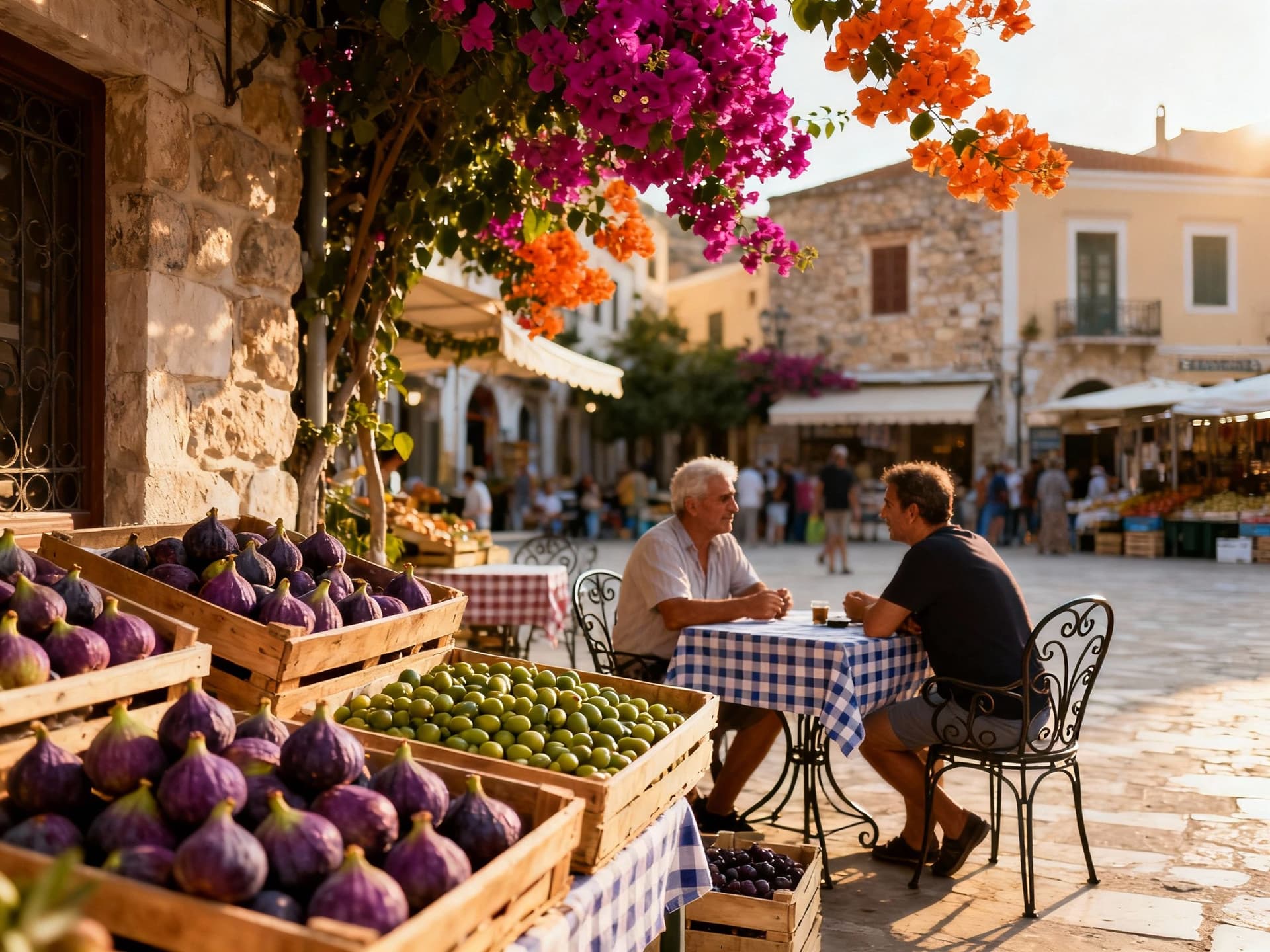
Greece feels like a country made of small moments: espresso at a counter in Kolonaki, evenings on Glyfada’s stones, or a Sunday fish lunch in the harbour of Nafplio. That variety is echoed in the property market — thriving coastal towns, quiet inland villages and compact urban neighbourhoods each carry distinct rhythms. Recent national indices show upward pressure on prices in 2024–25, especially in Thessaloniki and coastal hotspots, which matters for timing and neighbourhood choice. Knowing where pace, price and lifestyle align will save you wasted viewings and the heartbreak of buying what looks right but feels wrong.
Athens & surrounding towns: city life with surprising pockets of calm
Walk from Kolonaki’s boutiques to the shaded lanes of Koukaki and you’ll meet both a slow neighbourhood and a city that never stops inventing itself. South suburbs like Glyfada and Vouliagmeni trade marble and yachts for wide promenades and pine-backed beaches, making them favourites for families and buyers seeking greenery close to Athens. Beware the short‑term rental shake‑ups and local registration freezes — planned rules and enforcement in central districts can change rental viability overnight, so check current municipal ordinances before committing. A local agent who reads both municipal notices and café chatter is worth their weight in honeyed figs.
Islands & coast: seasonal abundance, winter truths
Islands offer that postcard life — tavernas, rocky coves, and a communal Sunday rhythm — but remember many services and planning offices slow through winter. The market can be counter‑intuitive: some island properties fall quiet off‑season yet command premium premiums in summer; others are steady because locals live year‑round. Eurostat and national indices both show that house prices and rents have risen again in early 2025 across Europe, so coastal buying requires careful thought about seasonality, access and long-term upkeep.
- Lifestyle highlights — what will anchor your days in Greece
- Morning espresso at neighbourhood kafeneio (Kolonaki, Plaka or Koukaki); walkable streets and mixed‑use life
- Weekend markets (Varvakios in Athens, Modiano in Thessaloniki) and seasonal fisherfolk stalls
- Coastal promenades and pine‑backed beaches (Glyfada, Vouliagmeni, many Ionian coves)
Making the Move: Practical considerations that match the life you want
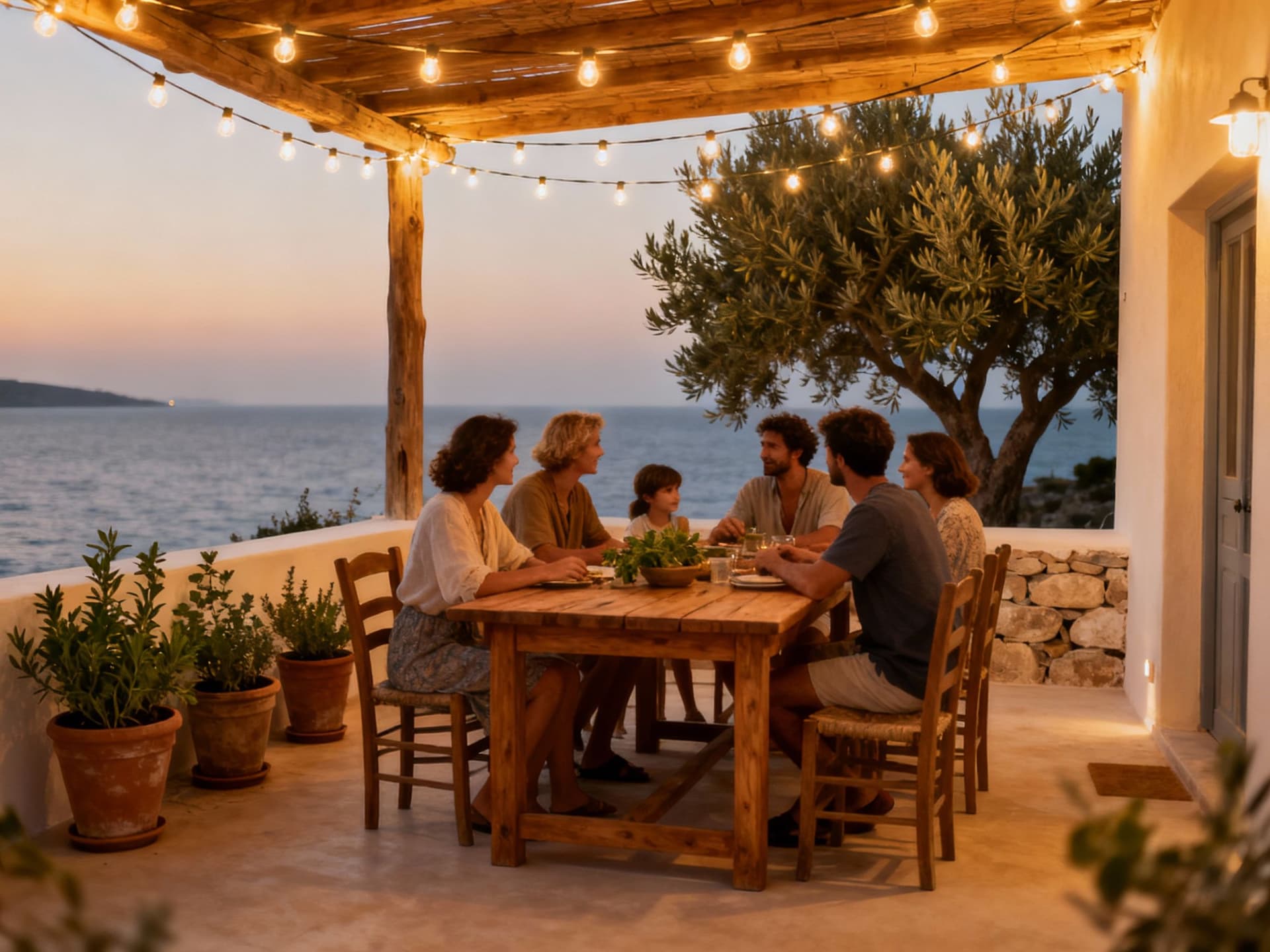
The romance opens into forms: building permits, transfer mechanics and a property register that has modernised rapidly in recent years. Greece has digitised large parts of transfer and reporting through the myPROPERTY and E9 systems, reducing time at tax offices but increasing the need for accurate documentary trails. Authorities are also intensifying audits of transfers and undeclared values, so transparent, banked payments and certified ENFIA clearances are non‑negotiable. That’s good for buyers — cleaner records reduce later surprises — but it means your advisor must be fluent in the digital paperwork as well as the local dialect.
Property styles & how they shape daily life
Stone farmhouses and village homes invite gardens, orchards and a low‑energy way of life; urban apartments trade outside space for walkable cafés and community life. New builds often include modern insulation and solar-ready roofs; classic buildings reward restoration with thick thermal mass and local stone. Match the property type to how you want to live: if you crave morning light and herbs, a terraced house with a south-facing roof terrace beats a soulless sea‑view box that’s empty for nine months. Recent Bank of Greece figures show rising prices across older stock too — restoration demand is strong, so budget for good local craftsmen.
Working with local experts who care about place
- How an eco‑minded local team protects lifestyle and investment
- 1. Verify land and building permits — confirm existing permits and any pending planning constraints with municipal planning offices and the Ktimatologio (land registry).
- 2. Check tax clean‑up — insist on ENFIA certificates for the last five years, proof of tax payments and bank‑recorded purchase funds (AADE is probing cash transactions).
- 3. Assess seasonal services — check winter accessibility, local health clinics, and year‑round water and waste services if you plan off‑season living.
- 4. Validate short‑term rental rules — ask for recent municipal ordinances and any registration numbers; enforcement has tightened in central areas and some island ports.
Insider knowledge — what expats wish they'd known (and how to avoid common surprises)
Expats often say: “I loved the house, but I didn’t love the red tape.” The truth is administrative surprises are less about hostility and more about local specificity — inherited partitions, vertical property rights, or informal building works are all common. Tax authority checks have increased where declared prices diverge from objective values, and transfers with cash elements face scrutiny. Treat transparency as a lifestyle choice: properties with clean deeds, certified ENFIA, and digital transfer records give you the freedom to plant, renovate and truly belong.
Cultural integration & everyday life
Language helps but warmth matters more: a few phrases go a long way, and being present at the local kafeneio or market builds trust. Neighbours will expect you to understand rhythms — the late lunch, the summer silence in August, the communal fixing of fences. These social customs shape the types of renovations that are welcomed, the gardens that thrive, and whether a property becomes a retreat or a lived neighbourhood home. Invest time first: rent nearby for a season if you can before buying, and you’ll see which streets truly hold community.
Long‑term stewardship: sustainability as a neighbourhood practice
Sustainable living here is often low‑tech and local: cisterns for rain, whitewashed roofs, thick stone walls and terraces planted for shade. When you budget for a purchase, include renewable readiness: space for PV panels, battery storage, and water‑saving retrofits — these raise upfront costs but reduce the heavy summer bills and import dependence. As market indices show steady price rises, investing in energy independence also protects lifestyle value and rents better in the long run.
- Red flags to walk away from (quick checklist)
- Missing building permit or ambiguous boundary descriptions in the deed
- ENFIA debts or incomplete tax clearance certificates
- Unbanked cash transactions or undocumented parental transfers flagged by tax audits
- Streets cut off in winter or properties dependent on seasonal boat access without reliable backups
Conclusion — take the life first, then secure it with the right process. Fall in love with a square, a beach, a family of fig trees; then hire a team that will translate that feeling into clean deeds, verified permits and a measured plan for sustainable upgrades. Start small — a season’s rental, neighbourhood coffees, and one trusted local lawyer and notary — and step into ownership with curiosity and caution. If you’d like, Moss & Hearth can connect you with vetted local partners who balance ecological stewardship with due diligence so your Greek life begins as it should: slow, rooted and sure.
Swedish advisor who left Stockholm for the Costa Brava in 2019. Specializes in sustainable, sea‑view homes for Scandinavian buyers and green finance insights.
